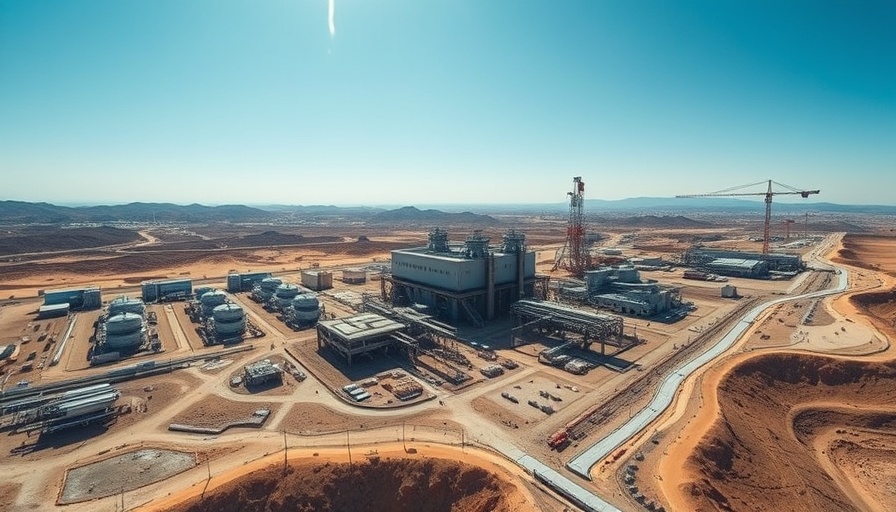
A Sustainable Step Forward: TSMC's Water Plant Initiative
In an exciting development for both technology and environmental stewardship, TSMC Arizona has commenced construction on a groundbreaking Industrial Reclamation Water Plant (IRWP) aimed at achieving 'Near Zero Liquid Discharge.' This innovative endeavor signifies TSMC’s commitment to sustainable operations, reflecting broader ecological concerns amidst the ongoing pressures of climate change. Expected to start operation in 2028, the IRWP will enable TSMC to recycle up to 90% of its water, a vital step in reducing dependency on municipal water supplies for its chip-making processes.
Breaking New Ground in Water Conservation
The IRWP facility, spanning 15 acres, will elevate TSMC's water recycling rate from the current 65% to a projected 90% once fully operational. This upgrade is crucial for meeting the stringent ultrapure water standards necessary for the fabrication of advanced semiconductor chips, particularly those employing cutting-edge technologies like 4nm chips. As Rose Castanares, President of TSMC Arizona, pointedly noted, TSMC’s investment in sustainable water practices is a pledge to cultivate responsible corporate citizenship while supporting a growing community in Phoenix.
Supporting Local Growth and Economic Security
Mayor Kate Gallego's affirmations on the importance of this project emphasize how TSMC’s innovation can coincide with local water security goals. This move demonstrates not only an alignment with economic growth but also showcases a commitment to maintaining the ecological balance necessary for future generations. The approach taken by TSMC reinforces that significant technological advancements can occur alongside sustainability, presenting a template for other corporations in the industry.
Learning from Global Best Practices
TSMC is not venturing into this terrain unprepared; its experience operating similar plants in Taiwan provides valuable lessons on water management. The Arizona plant design incorporates features based on successful practices from those facilities, adapted to the distinct water qualities in Phoenix. This knowledge transfer is essential, as it enhances operational efficiency while addressing the regional challenges posed by water hardness.
A Vision for the Future
The proactive planning seen with TSMC speaks to a larger trend where corporations not only consider their operational needs but actively contribute to the community and environment in which they operate. With water positivity as a goal for 2030, TSMC is underlining the critical intersection of technology and environmental responsibility, setting a prime example for other industries to follow.
As Phoenix navigates the complexities of growth in a water-scarce region, the IRWP signifies a blend of innovation and sustainability—fostering a resilient future.
 Add Row
Add Row  Add
Add 




Write A Comment